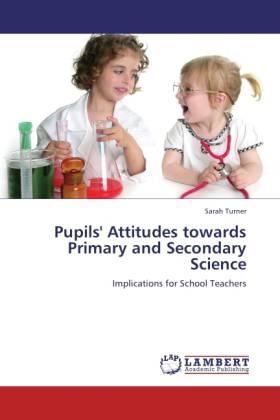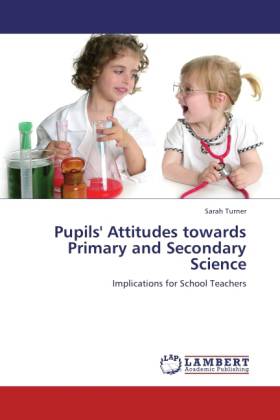
- Afhalen na 1 uur in een winkel met voorraad
- Gratis thuislevering in België vanaf € 30
- Ruim aanbod met 7 miljoen producten
- Afhalen na 1 uur in een winkel met voorraad
- Gratis thuislevering in België vanaf € 30
- Ruim aanbod met 7 miljoen producten
Zoeken
Pupils' Attitudes towards Primary and Secondary Science
Implications for School Teachers
Sarah Turner
Paperback | Engels
€ 77,95
+ 155 punten
Omschrijving
Pupils' attitudes towards science are fixed in primary school and this therefore has implications for secondary school science teachers. Pupils enjoy the practical aspects of science lessons and novel approaches of teaching; however, it also depends on the personal attributes of the teacher and the atmosphere in the classroom that is created. Pupils are also inclined to like science based on the creativity and enthusiasm displayed by the teacher. This thesis draws on different aspects of science education (lessons, being a scientist, careers) and aims to consider which areas pupils are positive toward, and which areas they display negative attitudes toward; changes for teachers that could be implemented are suggested. Pupil attitudes are difficult to measure however research methods are vast in this study drawing on case study data (diary keeping, interviews), questionnaires (over a period of 3 years), interviews, lesson observations and a small group picture-card activity. The variety of techniques provide a range of angles and pupil perspectives to consider when thinking about improving pupils' attitudes towards science education.
Specificaties
Betrokkenen
- Auteur(s):
- Uitgeverij:
Inhoud
- Aantal bladzijden:
- 268
- Taal:
- Engels
Eigenschappen
- Productcode (EAN):
- 9783844384956
- Verschijningsdatum:
- 1/02/2012
- Uitvoering:
- Paperback
- Afmetingen:
- 152 mm x 229 mm
- Gewicht:
- 395 g

Alleen bij Standaard Boekhandel
+ 155 punten op je klantenkaart van Standaard Boekhandel
Beoordelingen
We publiceren alleen reviews die voldoen aan de voorwaarden voor reviews. Bekijk onze voorwaarden voor reviews.











